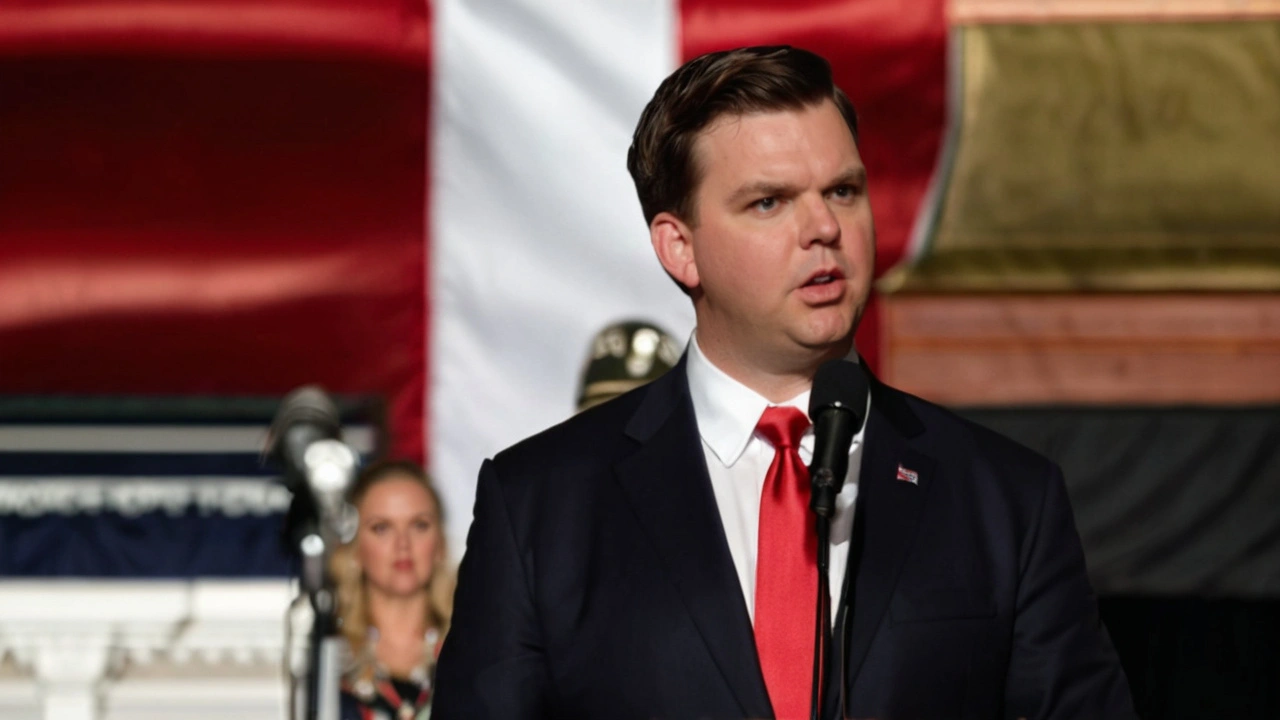JD Vance Stands by 'Childless Cat Ladies' Remark Amidst Political Backlash

JD Vance Stands by 'Childless Cat Ladies' Remark Amidst Political Backlash
Recent political discourse took a heated turn when Republican vice presidential nominee JD Vance was called out for his controversial 'childless cat ladies' comment. In a 2021 appearance on Fox News, Vance labeled prominent Democrats as 'childless cat ladies' who are dissatisfied with their own life choices and aim to make the rest of the country unhappy. The remark, targeting figures like Kamala Harris, Pete Buttigieg, and Alexandria Ocasio-Cortez, has sparked significant backlash.
Intended Sarcasm and Misinterpretation
During a recent interview on 'The Megyn Kelly Show' podcast, Vance attempted to clarify his statement, describing it as a sarcastic comment intended to criticize what he views as the Democratic Party’s anti-family and anti-child stance. According to Vance, his criticism was never directed at individuals who were unable to have children due to biological or medical reasons, but rather at the overall ideology he attributes to certain Democratic leaders.
Despite his explanation, many found his original words inflammatory and demeaning. The term 'childless cat ladies' has been widely interpreted as derogatory, marginalizing individuals, particularly women, who either choose not to have or are unable to have children. Such rhetoric, critics argue, continues to enforce harmful stereotypes and shames those without children.
Public Reactions and Backlash
The backlash was swift and widespread. Among the most vocal was actress Jennifer Aniston, who has publicly shared her struggles with fertility. Responding to Vance's comments, Aniston stated, 'Mr. Vance, I pray that your daughter is fortunate enough to bear children of her own one day. I hope she will not need to turn to IVF as a second option. Because you are trying to take that away from her, too.'
Her statement highlights the ongoing debate over reproductive rights, particularly surrounding access to in vitro fertilization (IVF). Under scrutiny was Vance’s vote against a Democratic bill proposing to protect access to IVF. In spite of this, Vance has voiced support for his daughter, who is currently two years old, stating that if she faced fertility issues in the future, he would support her efforts to seek help.
A Closer Look at the Democrats Targeted
Vance’s comments specifically mention Kamala Harris, Pete Buttigieg, and Alexandria Ocasio-Cortez, all prominent figures within the Democratic Party and all without children. These politicians have been the focus of both positive and negative attention for their policy positions and personal lives. Vance’s remarks suggest that their lack of children influences their political stance, an assertion that many find baseless and insulting.
Kamala Harris, the first female Vice President of the United States, has often faced gendered criticism, with opponents sometimes drawing undue attention to her personal life. Pete Buttigieg, the current U.S. Secretary of Transportation and openly gay politician, and Alexandria Ocasio-Cortez, a young progressive Congresswoman, have also been frequent targets of partisan attacks. Such remarks from Vance are seen by many as continuing a tradition of personal rather than policy-oriented attacks.
Reflecting on Political Discourse
Vance’s remarks and the subsequent fallout underscore the growing divisiveness in American political discourse. Statements like these contribute to an atmosphere where personal lives are unfairly vilified, sidelining the crucial policy discussions that should take center stage. Critics argue that such distractions impede constructive dialogue and understanding between political factions.
On one side, Vance’s defenders might argue that his commentary is an exposure of what they perceive as hypocrisy or negative influences within Democratic leadership. On the other, his critics see these remarks as harmful and unnecessary, diverting focus from substantive policy matters. The spotlight on these controversies often overshadows critical conversations about reproductive rights, family policy, and broader social issues.
Looking Ahead
As the election cycle progresses, Vance’s comments about 'childless cat ladies' will likely continue to be a talking point. With ongoing debates about reproductive rights and family values playing a significant role in American politics, statements like these are bound to resurface. They highlight the polarized nature of political rhetoric, where personal attacks are often used to underscore broader ideological disagreements.
It remains to be seen how Vance’s candidacy will be affected by this controversy. What is certain, however, is that the discussion around his remarks is far from over. Vance’s stance on family and reproductive issues will continue to be scrutinized, both by his supporters and detractors. The broader conversation about how politicians address personal choices in public discourse will also persist, questioning the extent to which personal life should influence or reflect political ideology.
In summary, JD Vance's comments on 'childless cat ladies' have ignited a significant backlash, sparking debates on reproductive rights and family values in U.S. politics. The criticism from figures like Jennifer Aniston reflects the wider societal impact of such statements. As this controversy unfolds, it serves as a reminder of the complex interplay between personal lives and political discourse in America today.